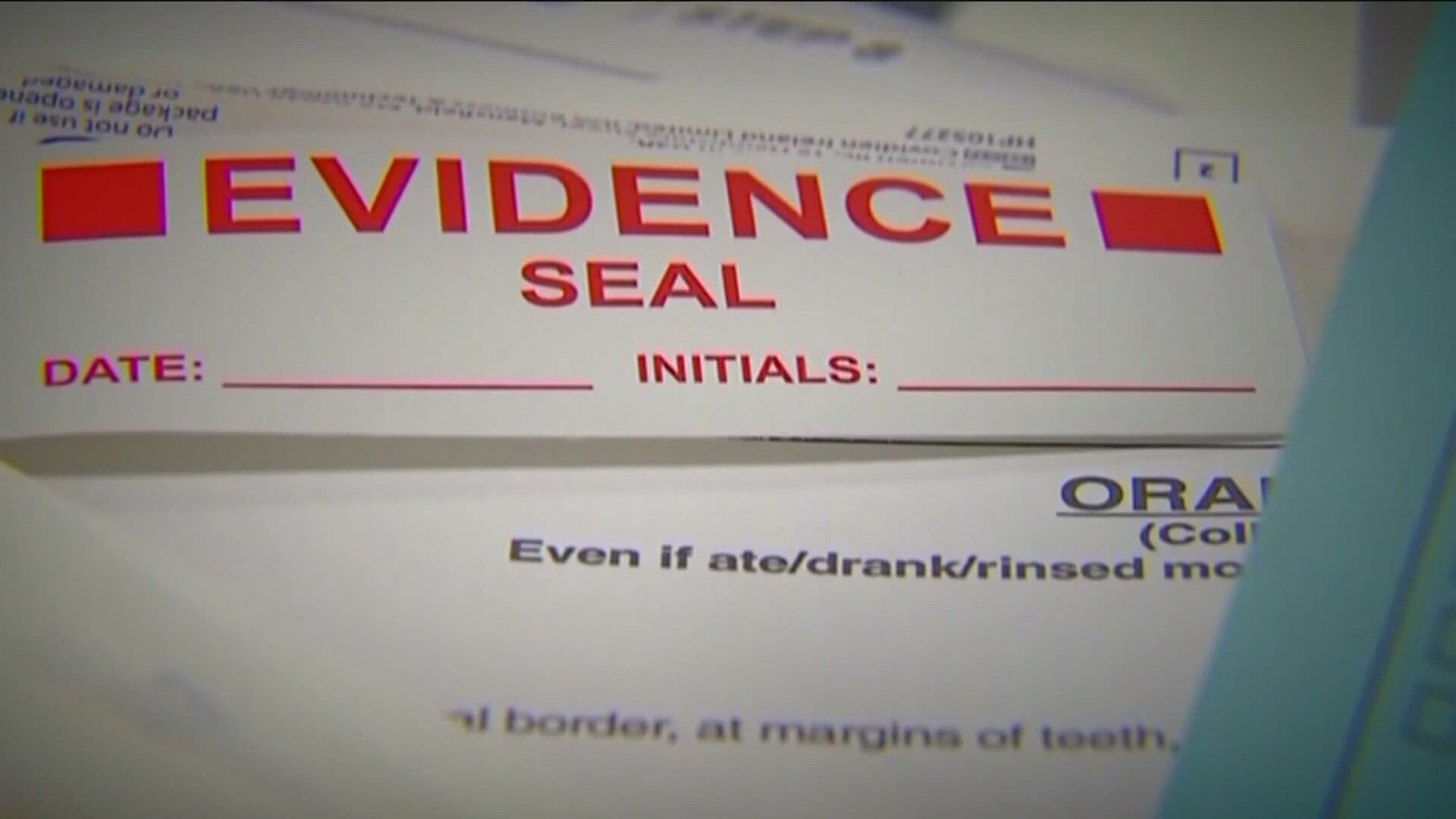ATLANTA — A federal grant will now help metro Atlanta investigators test more than 4,000 rape kits.
The Fulton County District Attorney's Office and the Atlanta Police Department are tackling the backlog with a new $2.5 million grant. The funds will initiate the testing of 4,342 sexual assault kits at the Georgia Bureau of Investigation and via private labs, according to District Attorney Fani Willis.
A majority of the kits' samples were taken in the 80s and 90s - meaning decades have passed with no movement in thousands of cases, Willis stressed.
"It's a wrong we're really historically correcting," she said, referencing a backlog that stems from 2016.
According to a news release, the grant will loop in two APD detectives into the DA's Sexual Assault Kit Initiative (SAKI) team - which is dedicated to getting through the backlog of kits at Grady Hospital. The addition of the detectives doubles SAKI's workforce.
"We are only able to do SAKI because of the federal government," Willis said, explaining that the funding helps pay to seek private testing of the kits, instead of just relying on the GBI lab.
The GBI sent 11Alive a statement following the announcement:
The GBI Crime Lab is in full support of the initiative by APD and the Fulton DA to test these older kits. The kits were previously evaluated and tested by the GBI Crime Lab to the extent possible at the time of their submission before the year 1999. The evidence is currently being held at the crime lab as part of our support for their initiative to utilize current technology to develop investigative leads in older, unsolved cases.
Impact of the grant is already being seen
Deputy District Attorney Julianna Peterson oversees the SAKI Unit and broke the initiative down by the numbers.
Peterson said the team has already sent 300 kits of the 4,342 for testing. Specifically, 3,558 belong to APD. She's hopeful that arrests can be made in cases as 954 have leads that can paint DNA profiles.
For perspective, she said, there are 78 active investigations from the initial discovery of the Grady backlog. The team is already investigating 15 forensic matches, which are 15 cases where there is a suspect connected to several cases but no identity.
"Having APD join us means that we'll be able to tackle those cases which take a substantial amount of time," Peterson said.
Though it's a major task at hand, Peterson and Willis said they are dedicated to seeking justice.
"We should never focus on a number of 'oh, 4,000 rape kits,' - no. Those are 4,000 horrible days, horrible nights, horrible victimizations, and so this work is very, very important," Willis said.
By working on the backlog, police might be able to find suspects believed to be tied to other crimes.
"As we test these rape kits, time, after time, after time we find serial rapists who have victimized not one, but multiple victims," Willis said. "And we also find lives of crime," explaining that often people are tied to other cases beyond sexual assault.
Watch the district attorney's full announcement on the grant and initiative below. The story continues after the video.
Why the backlog?
To put it frankly, Willis said the kits weren't in possession of her office or law enforcement.
"These victims were discounted," Willis said. "We are whittling them down," speaking of the kits.
In 2016, it was discovered that Grady Hospital had untested sexual assault kits but, according to APD and Willis, there wasn't the manpower to get through all of them. This is how SAKI and the new grant will help.
This grant comes a year after a new online system in Georgia was implemented to allow victims and investigators to track the status of sexual assault kits. This was a result of addressing the backlog. GBI eventually tested the kits after receiving increased funding and staffing - and though the agency made headway in the backlog - 800 kits were entered into the system signaling a need to keep pace with the kits as they come.
"This process is across the nation," Willis said.
Though when funding runs out, it will be tough to keep testing the kits, Willis said she and the team are focused on what they can get done now adding that the office has had a successful track record.
"We've won trials, we've won pleas," she said. "Each of those 4,342 kits represents a victim - and that doesn't need to get lost."

